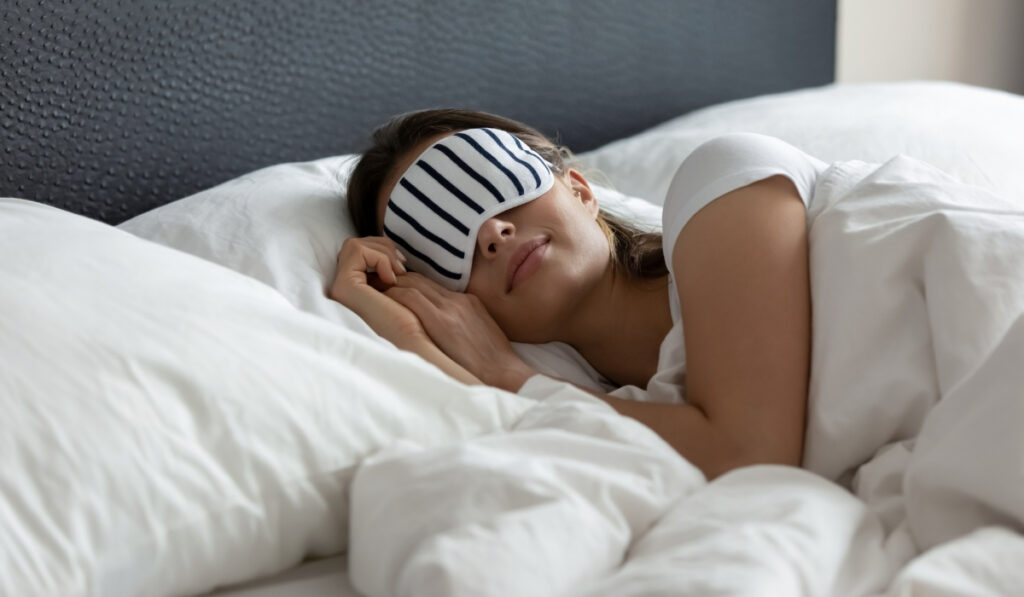Sleep is one of the most essential needs for all human beings; that being said, all of us have gone through sleepless nights. We all have had nights where we roll around in the bed for hours on end, frustrated that we cannot fall asleep. If you are looking for ways to fall asleep faster, you have come to the right place.
Let us go through 9 tips that can help you to fall asleep fast.
1) Switch Off The Lights
I know that it is not a problem for most of us to sleep with the lights on. However, sleeping with the lights on affects the circadian rhythm. Our body finds it difficult to judge whether it is time to sleep or not with the lights on. So, it is important to sleep in a room with less exposure to light.
2) Stick To Fixed Sleep Timings
Due to professional and personal commitments, we tend to sleep at different timings every night. However, irregular sleep timing disturbs our body’s circadian rhythm. Once the circadian rhythm experiences disturbances, the person will find it difficult to fall asleep. If you go to sleep at the same time every night, your brain adapts to the schedule and prompts you to sleep around the same time every day.
3) Use The 4-7-8 Breathing Technique
Your breath is an important tool that will help you to sleep faster. You can use this simple breathing technique called the 4-7-8 breathing method.
Here below, I provide steps for you to do the exercise.
- Rest the tip of your tongue behind the upper front teeth
- Completely exhale through the mouth with a whoosh sound
- Close your mouth and inhale through the nose for 4 seconds
- Hold your breath for 7 seconds
- Open your mouth and exhale with a swish sound for 8 seconds
- From the beginning, repeat this exercise for a total of three cycles
As you do this breathing exercise, it naturally relaxes the body’s nervous system and helps you sleep.
4) Limit Screen Time
When you try to sleep, stay away from electric devices. It is important because the blue light emitted from these devices messes up the circadian rhythm and suppresses melatonin production. As a result, your sleep quality gets affected. Even if you look at scientific research, experts affirm that there are long-term benefits of sticking to limited screen time. Limited screen time improves sleep. Apart from reducing screen time, you should try to break habits such as internet surfing and television watching. Instead, you should write or do breathing exercises.
5) Take A Shower
Your body temperature influences your sleep. As soon as you take a warm shower, your body temperature drops rapidly. So, it becomes easier for you to fall asleep. A scientific report suggests that taking a bath 90 minutes before sleep time hastens the process of falling asleep.
6) Hide Your Clock
It is natural to keep checking your clock when you lie down in bed. You watch the time fly by. Meaning, 10:00 p.m becomes 12:00 a.m and 12:00 a.m becomes 2:00 a.m. As you keep checking the clock, it puts more pressure on your sleep. So, you will find it difficult to fall asleep. To avoid checking the time constantly, place the clock far away from your sight.
7) Write Your Heart Out
Due to distracting thoughts and overwhelming emotions, you might find it hard to fall asleep faster. Believe it or not, writing is an amazing way to process all your thoughts and feelings. This kind of processing is useful for relaxing the mind and inducing sleep. All you have to do is jot down all your thoughts and feelings on a piece of paper.
8) Include Exercise In Your Routine
When you incorporate exercise into your daily routine, the time taken to fall asleep significantly reduces. Most important of all, remember to do exercise in the mornings, afternoons, or early evenings. However, exercise during the night is not a good idea because it keeps you awake and alert. Remember, do exercise only during the day.
9) Create A Bedtime Ritual
An hour before your bedtime, begin the winding-up ritual. For example, drink a glass of milk, take a shower, listen to music, and do breathing exercises. Sticking to a bedtime ritual sends cues to your mind and body that it is time to go to sleep.
Using the tips mentioned in the article will help most of us; it is not a magic pill, and consistency is key like with any other habit. If you are still having problems falling asleep, please visit your doctor.





